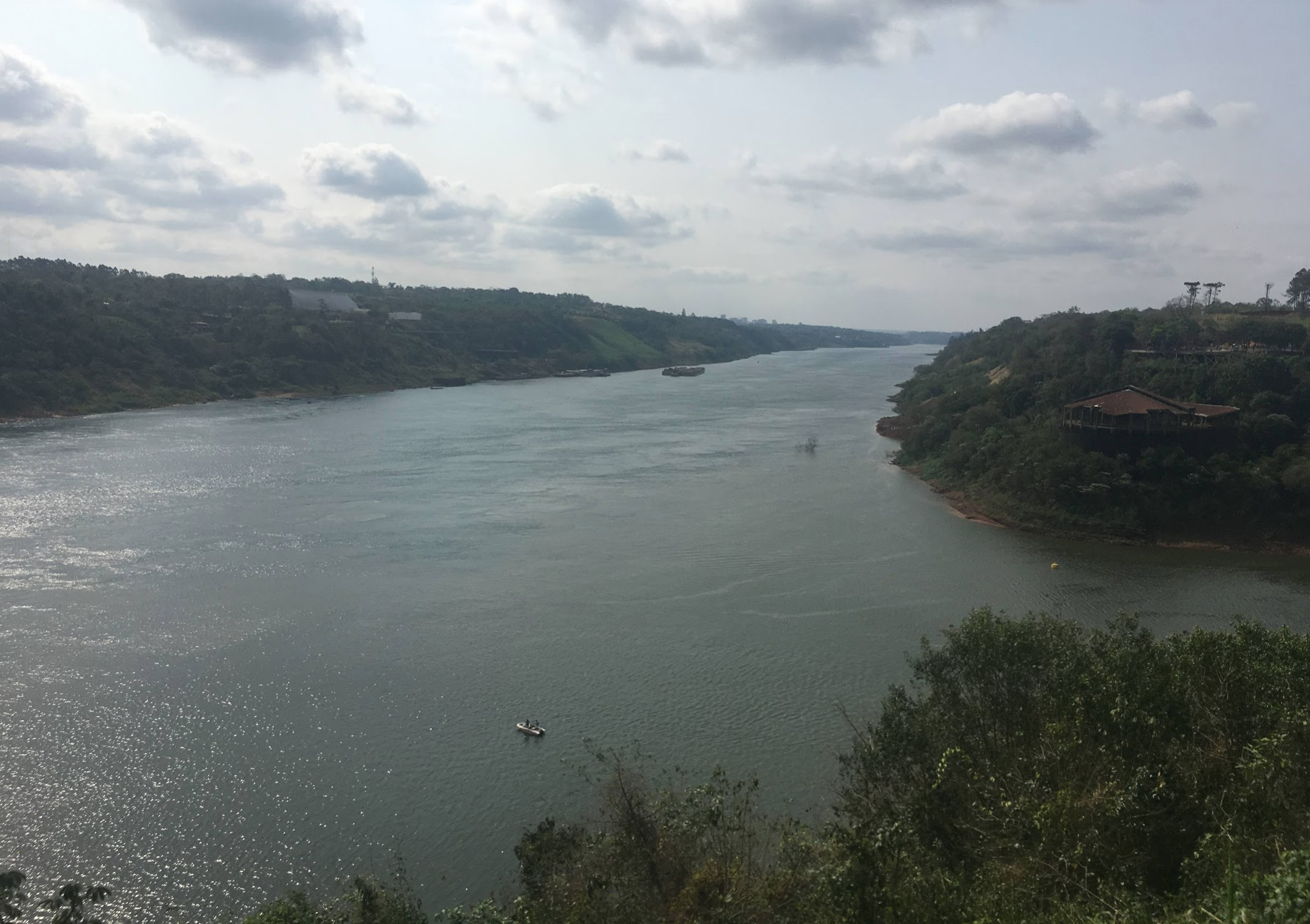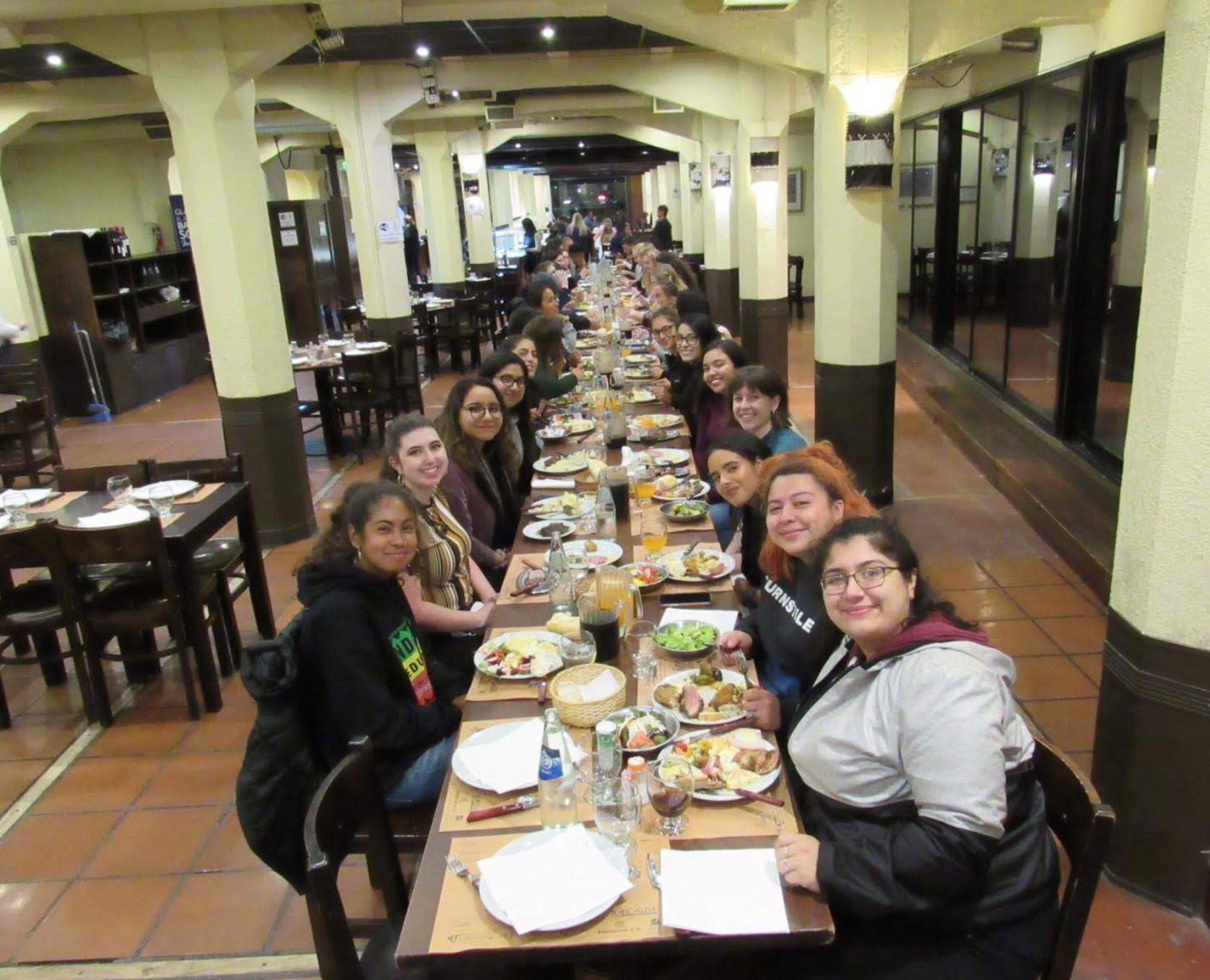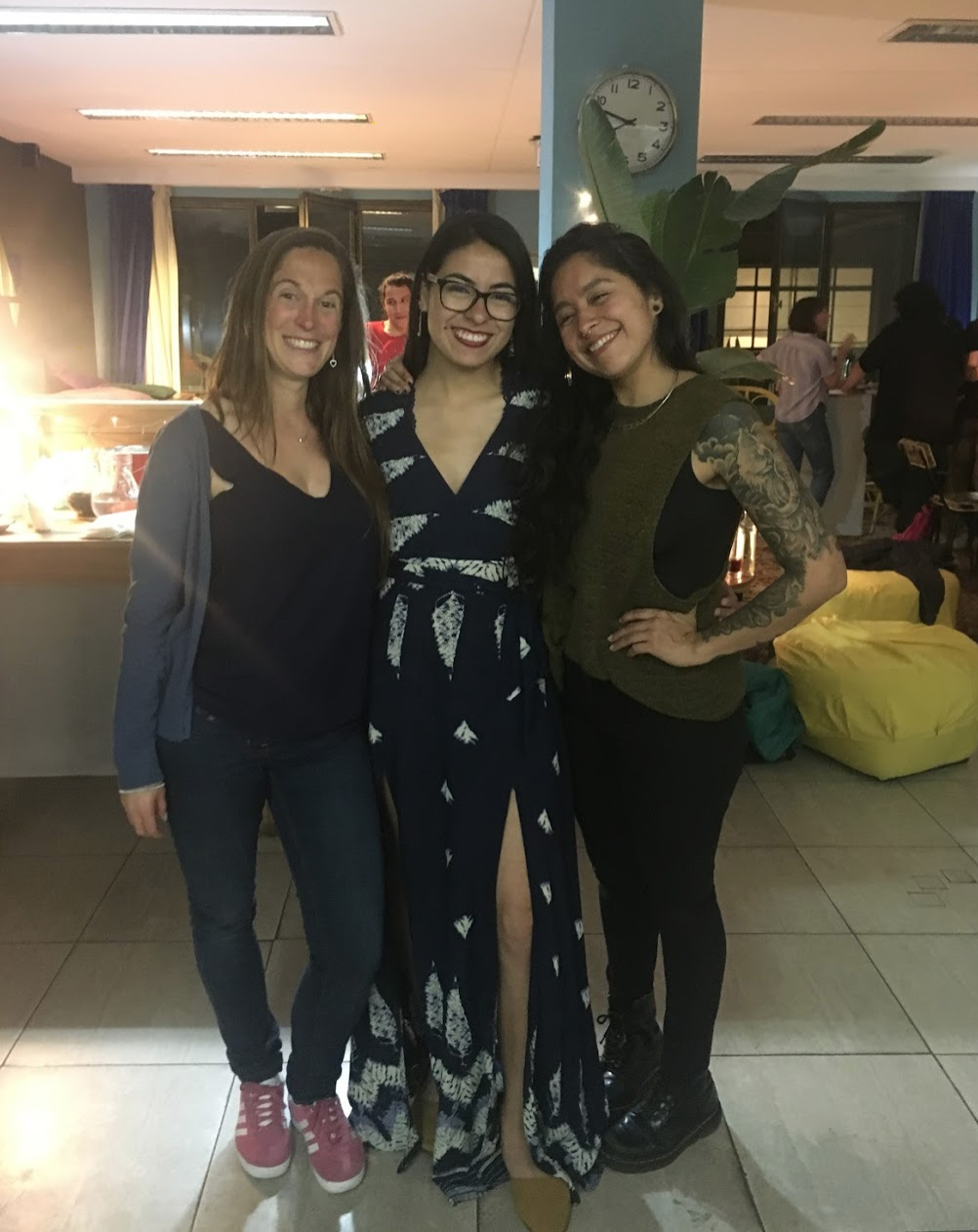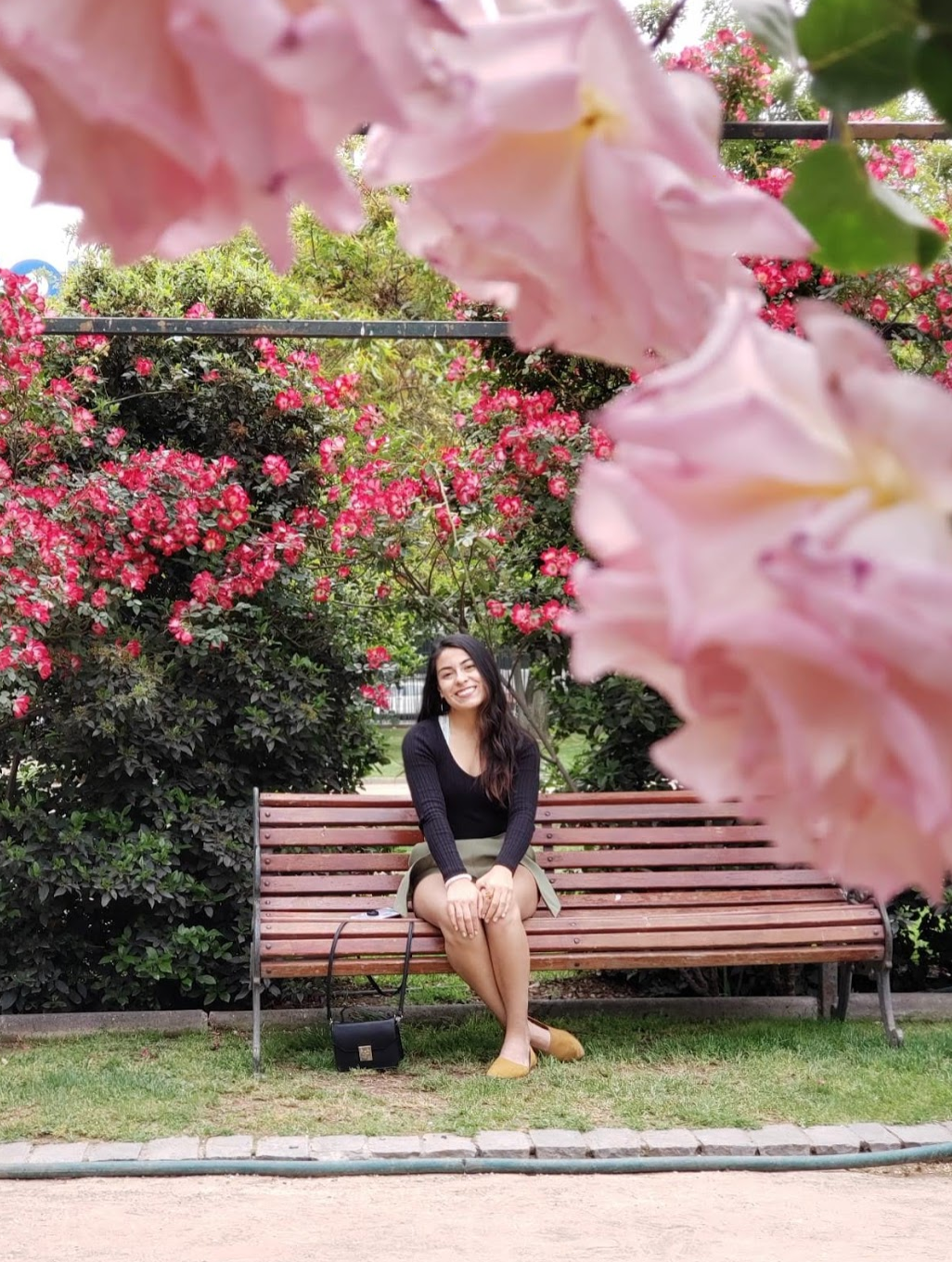Hi there! This is Christal Juarez checking in as I reflect further from my recent experience as a Gilman Scholar. In the Fall of 2019, I studied human rights in both Argentina and Chile with the help of the Benjamin Gilman International Scholarship. Now, as a 2020 UC Davis first-generation graduate, I feel grateful to have studied abroad and later become a Gilman Alumni Ambassador with the motive to help fellow students achieve their professional, personal, and academic goals through Gilman!

The Triple Frontier, where waterfalls from Paraguay, Argentina, & Brazil meet–Iguazu Falls.
A little bit more about myself–I first studied abroad in the summer of 2017, in Geneva, Switzerland. Studying abroad, to me, felt like one of the only opportunities where I could explore the world while simultaneously exploring more about myself, my likes, and dislikes. Yet, even as I ecstatically applied for my program, I could not have imagined what doors studying abroad would open for me, or what challenges I would come to face. Studying abroad quickly led to an entire career change. At the time that I was in Geneva, I was an English major and considering the name of my first novel. Merely a few months after my first program, I became an Anthropology and International Relations major who had just started working under the UC Davis Study Abroad department, where I would stay employed for the remainder of my undergraduate career and obtain an internship through a partnering department. Admittedly, I was only 18 at the time of my embarkment to Switzerland, and while I felt ecstatic to have the opportunity to study abroad in the first place, I quickly recognized that I could not embark on a similar experience again without additional funding.

La Vaca Loca, Buenos Aires: First Dinner with the participants in my program!
For quite some time following that first program, I carried a bit of guilt knowing that I potentially rushed into a program of such high cost far too quickly. Instead of wallowing on the natural mistakes that I made my first time studying abroad, I channeled my energy into becoming as best informed as I could when passing on information about studying abroad to my fellow UC Davis peers. To rectify my program misgivings, I made sure to let every student know the role of our campus financial aid and the scholarships available, which is actually how I learned about the Benjamin Gilman International Scholarship. When my supervisor presented me with this information, I felt my eyes light up and sparkle–the scholarship description and eligibility described individuals like me, and it was one of the very few times that I have felt welcomed by institutions of high power. Not wanting others to miss out on this great opportunity, I often asked students, “Are you a Pell Grant recipient?”.

Last Dinner in Buenos Aires: Pictured with our two amazing program leads.
Truly, it was the knowledge that a scholarship such as the one provided through Gilman existed that later enabled me to try and study abroad a second time, to Chile and Argentina for an entire fall semester. To me, one of the most magnificent aspects of the Gilman International Scholarship is that it intentionally targets individuals who may otherwise have not felt seen in the usual discourse of people representing the United States abroad. By focusing on low-income, diverse groups, and by further emphasizing the significance of the opportunity to represent the United States abroad, Gilman becomes more than a funding opportunity–it becomes an opportunity to make our communities visible to communities like and unlike our own across international lines.
As a previous study abroad advisor, I feel that I can speak to several reasons as to why studying and interning abroad are so important. There’s the opportunity to connect with individuals abroad and broaden your career market, the multicultural skills, language proficiency, and the unforgettable memories you leave with, among so much more. However, as a first-generation college student, I feel the urgency to share why studying abroad truly made a difference within my inner circles and community. First-generation students are tasked with absorbing the information of the college experience and passing it down to our siblings, extended family, friends, friends’ siblings, and more. Thus, studying abroad in my community not only provided me with the opportunity to explore academia in other regions of the world, but it further enabled me to pass down that unique perspective and information back into my community with the hopes that others may also feel prepared and supported for their own global experience. Moreover, as a newly Gilman Ambassador, I feel particularly moved to continue sharing information that may help more first-generation students, like me, to keep pushing forward and opening new doors for our communities in the future.

Parque Arauco, Santiago Chile: The Beautiful Garden Near my Homestay.
In offering the Gilman Scholarship for communities of low income, the Gilman team accomplishes something uniquely magnificent–it enables a sense of visibility within our communities that we often don’t receive in our daily lives. The visibility that demonstrates the prestige housed within our communities, despite coming from historically low-funded and low-resourced backgrounds. Even further, becoming a Gilman Scholar feels beyond that of a recipient of funding, but of as a representative of the United States. While to some that may not carry equal significance, for low-income communities, it is uniquely valuable to see ourselves and individuals from other minority groups represented on such a global scale. I feel a sense of pride and a sense of belonging: I am proudly first-generation, proudly a United States representative, and proudly a Gilman Scholar and Ambassador.



